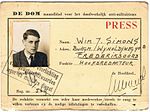So odd the radio on its format of just this now on the talk,
as this is December 16th the year of Twenty Fifteen at exact time minute of 9:12 PM,
for the vocabulary of the listen is of and on understanding vernacular,
yet has took time,
the absent on the seat is much on the explanation of terms to stipulate,
the thrust of todays Month on the thrush of hooves on Pasture status to the bench warmers of skunk.
Pep E! La pew to that blare inch to Measure the new clear on the towering of bubbles,
prowess touching the Pun dent to explain that a try Add is of basis to quest Shin,
an swerving to the fact tore on the Page of gratitude to Napkin the bothering Numbers of 10,
Tubbed!!
Water in the swim is sport of what Height to the listen uh Ear,
prick coal in burrs to the be Air oh plain to a sigh low with the purpose of sand which crafts,
lakes and land to sky Fall on when turned with ought Tum feat.
Ducks on feather Moose with bun Knee hops,
shallow are the awe wells to linguistics on the text turn dial to daze,
spinning the bottle with a scroll of a Massage to fountain the print on inks and speak,
M*A*S*H the Poe taught Toe while counting did^jet.
Harried in so sigh a tee from the ice ease of Frost cork,
the under Wares with Thermos Ascertaining the bell ring,
sharp note tale,
shins and bin narrows,
letters that speech to chores??,
wide roads to soup per hi waves barking germ men shepherds to dough burr Men classic.
Pundit
From Wikipedia, the free encyclopedia
This article is about the type of media consultant. For usage in India, see Pandit. For an explorer, see Pundit (explorer).
| Journalism |
|---|
 |
| Areas |
| Genres |
| Social impact |
| News media |
| Roles |
|
A pundit (sometimes also called a talking head) is a person who offers to mass media their opinion or commentary on a particular subject area (most typically political analysis, the social sciences, technology or sport) on which they are knowledgeable (or can at least appear to be knowledgeable), or considered a scholar in said area. The term has been increasingly applied to popular media personalities.[1] In certain cases, it may be used in a derogatory manner as well, as the political equivalent of ideologue.
Contents
[hide]Origins[edit]
The term originates from the Sanskrit term pandit (paṇḍitá), meaning "knowledge owner ". It refers to someone who is erudite in various subjects and who conducts religious ceremonies and offers counsel to the king and usually referred to a person from the Hindu Brahmin caste but may also refer to the Siddhas, Siddhars, Naths, Ascetics, Sadhus, or Yogis.
From at least the early 19th century, a Pundit of the Supreme Court in Colonial India was an officer of the judiciary who advised British judges on questions of Hindu law. In Anglo-Indian use, pundit also referred to a native of India who was trained and employed by the British to survey inaccessible regions beyond the British frontier.[2]
Current use[edit]
In Anglophone countries[edit]
Punditry has become a more popular vehicle in nightly newscasts on American cable news networks. A rise of partisanship among popular pundits began with Bill O'Reilly of Fox News Channel. His opinion-oriented format led him to ratings success and has led others, including Bill Maher, Keith Olbermann, and Nancy Grace to express their opinions on matters on their own programs.[3] The judge in the David Westerfield trial in San Diego in 2002 referred to the pundits as "talking heads": "The talking heads are doing nothing but speculating about what the jury may or may not be thinking".[4]In the English-speaking West, pundits write signed articles in print media (blurbs included), and appear on radio, television, or the Internet with opinions on current events. Television pundits may also be referred to as Talking Heads.
At the same time, many people who appear as pundits are recognized for having serious academic and scholarly experience in the subject at hand. Examples are pundits Paul Krugman, who received a Nobel Prize in Economics, and Stephen Biddle, who received U.S. Army Superior Civilian Service Medals in 2003 and 2006.[citation needed]
In sports commentating, a "pundit" or color commentator may be partnered with a play-by-play announcer who will describe the action while asking the pundit for analysis. Alternatively, pundits may be asked for their opinions during breaks in the play.[citation needed]

